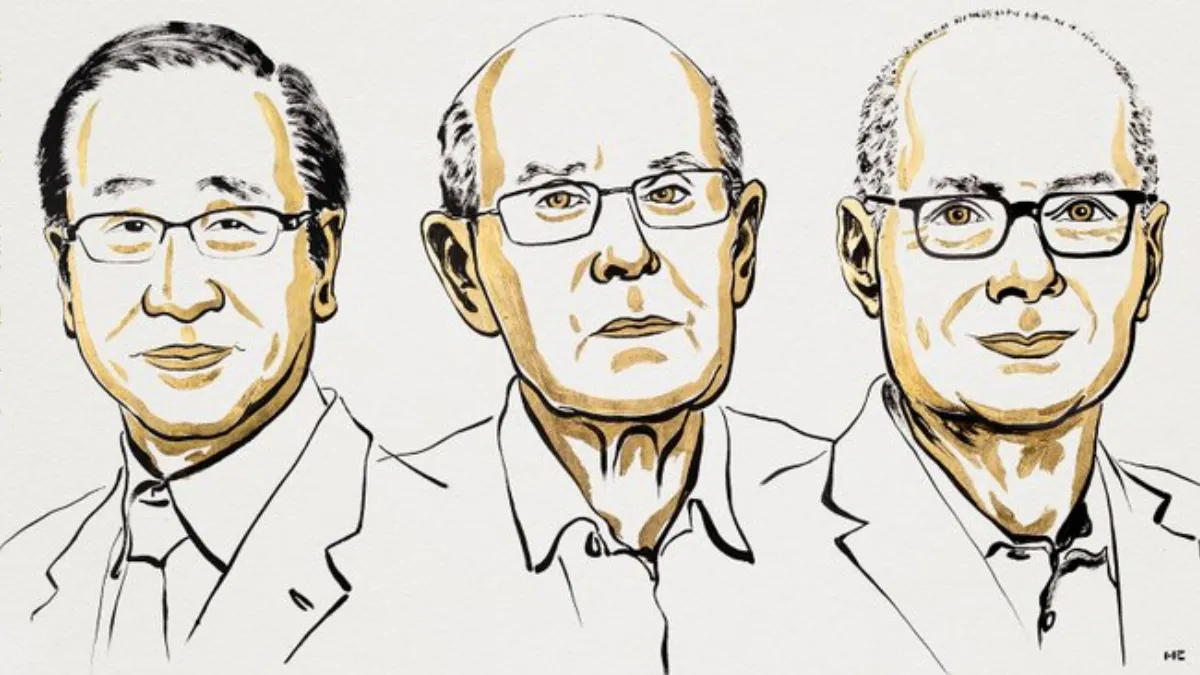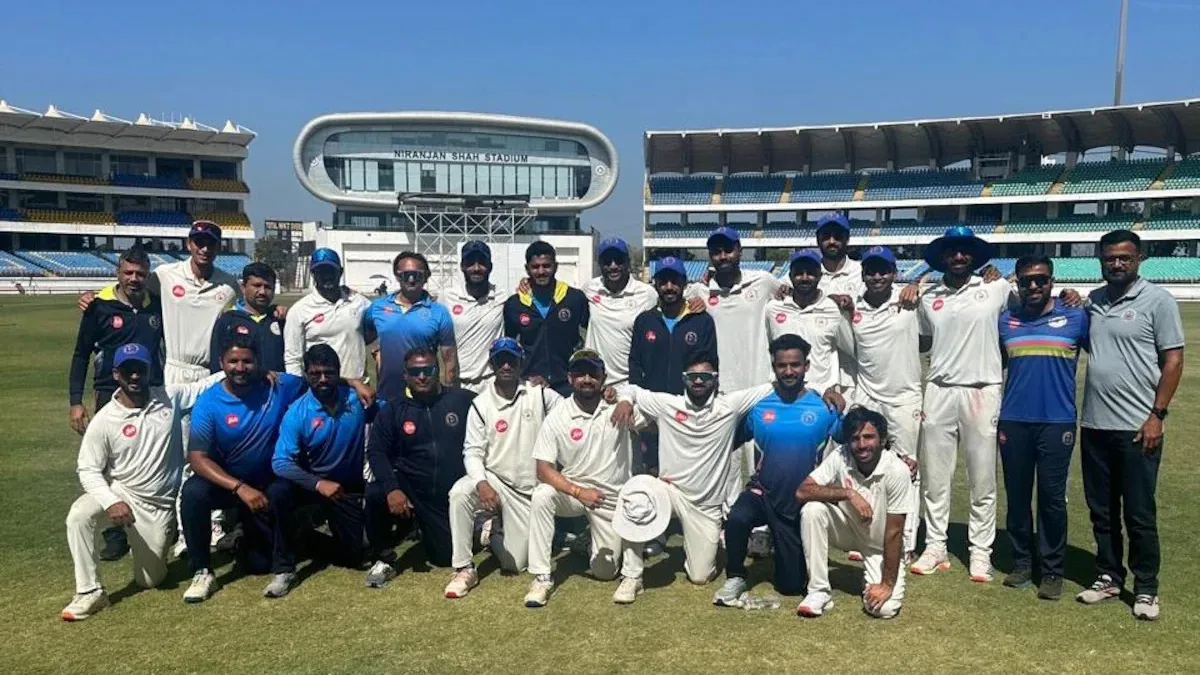Stockholm, Sweden: Nobel prize mof: The 2025 Nobel Prize in Chemistry has been awarded to Susumu Kitagawa, Richard Robson, and Omar M Yaghi for their groundbreaking work in the development of metal-organic frameworks (MOFs). The Royal Swedish Academy of Sciences announced this afternoon that the three chemists will share the prize money of 11 million Swedish crowns, roughly equivalent to Rs 10 crore in Indian currency. Beyond the financial reward, the Nobel Prize carries immense global prestige in the scientific community.
What Are Nobel Prize MOFs?
Metal-organic frameworks (MOFs) are advanced chemical structures made by combining metal ions with organic molecules. According to the Nobel Committee, these frameworks are remarkable for their versatility and potential applications. MOFs can be used to:
- Harvest water from desert air
- Capture carbon dioxide from the atmosphere
- Store toxic or harmful gases safely
- Catalyze complex chemical reactions
Heiner Linke, Chair of the Nobel Committee for Chemistry, stated, “Metal-organic frameworks have enormous potential, bringing previously unforeseen opportunities for custom-made materials with new functions.” This makes MOFs a crucial innovation in both environmental science and materials chemistry.
BREAKING NEWS
— The Nobel Prize (@NobelPrize) October 8, 2025
The Royal Swedish Academy of Sciences has decided to award the 2025 #NobelPrize in Chemistry to Susumu Kitagawa, Richard Robson and Omar M. Yaghi “for the development of metal–organic frameworks.” pic.twitter.com/IRrV57ObD6
Susumu Kitagawa: Japan’s Leading Chemist
Susumu Kitagawa holds a PhD in hydrocarbon chemistry from Kyoto University, Japan, and currently serves as a professor there. He has previously been recognized with awards such as the Humboldt Research Prize (2008) and the De Gennes Prize. Kitagawa’s research has focused on designing MOFs with high stability and efficiency, paving the way for practical applications in energy, gas storage, and water purification.
Richard Robson: From the UK to Australia
Richard Robson, born in the United Kingdom, studied chemistry at the University of Oxford and now teaches at the University of Melbourne, Australia. Robson’s work has been instrumental in understanding the fundamental architecture of MOFs, helping chemists design frameworks with precise chemical and structural properties. His research emphasizes the potential of MOFs in industrial and environmental applications.
Omar M. Yaghi: Innovator from Jordan
Omar M. Yaghi was born in Amman, Jordan, and completed his PhD at the University of Illinois Urbana-Champaign, USA. He currently teaches at the University of California, Berkeley. Yaghi is widely recognized for his pioneering work in reticular chemistry, which laid the foundation for creating highly functional MOFs. His research has opened doors for new applications, including energy storage, catalysis, and environmental remediation.
Also read: 3 Scientists Win 2025 Nobel Prize in Physics for Groundbreaking Quantum Mechanics Research
The Global Impact of MOFs
The development of Nobel Prize MOFs represents a major leap in material science and chemistry. By allowing for the creation of tailor-made materials with unique properties, MOFs have transformed approaches to sustainability, clean energy, and chemical engineering.
- Environmental Benefits: MOFs can efficiently capture greenhouse gases like carbon dioxide, helping combat climate change.
- Water Solutions: Certain MOFs can extract water from arid desert air, offering potential solutions for water scarcity.
- Industrial Applications: MOFs serve as catalysts in chemical reactions, making industrial processes cleaner and more efficient.
The Nobel Committee emphasized that the possibilities offered by MOFs were previously unimaginable, making them a significant contribution to scientific innovation.
Also read: Nobel Prize News 2025: Medicine Awarded to Two Americans and One Japanese Scientist
A Look Back: Last Year’s Nobel Prize
In 2024, the Nobel Prize in Chemistry was awarded to David Baker, John Jumper, and Briton Demis Hassabis for their work in protein structure prediction using artificial intelligence and computational methods. This year’s focus on MOFs highlights the continuing evolution of chemistry as a field with both practical and transformative potential.
Upcoming Nobel Announcements
The Nobel Prize in Literature for 2025 will be announced tomorrow, followed by the Nobel Peace Prize on Friday. The global scientific community eagerly awaits these announcements, as Nobel recognitions continue to highlight groundbreaking contributions across multiple disciplines.
Conclusion
The awarding of the 2025 Nobel Prize in Chemistry to Susumu Kitagawa, Richard Robson, and Omar M Yaghi underscores the revolutionary importance of Nobel Prize MOFs in science and technology. Their discoveries not only advance the understanding of material chemistry but also offer solutions to some of the world’s most pressing environmental and industrial challenges.
By combining innovation, practical applications, and scientific insight, the work of these three chemists will influence generations of research, setting a benchmark for creativity and impact in chemistry.

















